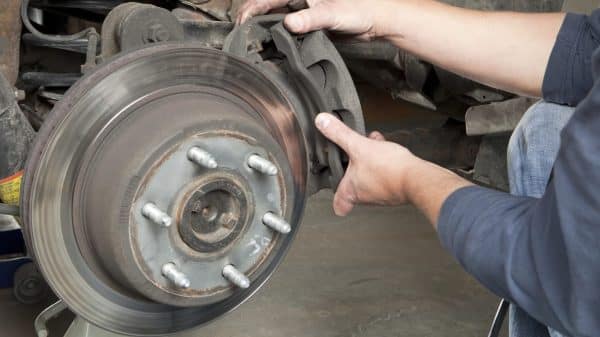
The Short Answer:
Truck accident liability in Tennessee could involve multiple parties, not just the truck driver. The trucking company, a cargo loading service, a vehicle manufacturer, or even a maintenance provider may share legal responsibility. These cases are often more complex than standard car accidents because of the number of parties involved and the federal regulations that apply to commercial trucking. Tennessee also follows a modified comparative fault rule; if you’re found 50% or more at fault for the crash, you can’t recover compensation. That’s why it’s essential to speak with a local truck accident lawyer who can investigate the case, identify all liable parties, and help you pursue the full compensation you may be owed.
Key Takeaways:
- More than 1 party may be liable in a Tennessee truck accident, including the driver, the trucking company, and others.
- Trucking companies may be held responsible for driver errors, poor maintenance, or violations of safety regulations.
- Liability is determined based on negligence, which involves proving a duty of care, a breach of that duty, and resulting damages.
- Tennessee uses a modified comparative fault system. If you are 50% or more at fault, you may not be able to receive compensation.
- Working with an experienced Tennessee truck accident attorney can improve your chances of identifying all liable parties and securing maximum compensation.
Table of Contents
- Why Liability in Truck Accidents Is More Complicated Than You Think
- Who Can Be Held Liable in a Tennessee Truck Accident?
- How Liability Is Proven in a Truck Accident Case
- What If Multiple Parties Share the Blame?
- Types of Compensation You May Be Owed
- How Long Do You Have to File a Truck Accident Claim in TN?
- How a Chattanooga Truck Accident Lawyer Can Help
- Contact The McMahan Law Firm Today
Why Liability in Truck Accidents Is More Complicated Than You Think
Liability in a truck accident case is rarely simple. Unlike a typical car accident, where 1 driver is usually to blame, truck accidents tend to involve multiple layers of responsibility. That’s because commercial trucking is regulated differently, involves more people, and comes with a higher standard of care.
It’s not just the truck driver who might be held accountable. The trucking company that hired the driver, the business that loaded the cargo, the maintenance crew, or even the manufacturer of a faulty part could also share the blame. Each of them might try to dodge responsibility by pointing fingers at someone else.
These cases are also shaped by a mix of federal and state laws. The Federal Motor Carrier Safety Administration (FMCSA) sets rules for commercial vehicles: everything from how long drivers can be on the road to how often trucks must be inspected. Breaking these rules can make it easier to prove negligence.
On the state side, Tennessee law decides how fault is divided and what kind of compensation you can recover. Under the state’s modified comparative fault rule, if you’re found 50% or more at fault, you won’t be able to collect damages.
Who Can Be Held Liable in a Tennessee Truck Accident?
Because commercial trucking involves multiple parties, each with its own responsibilities and legal duties, multiple companies or individuals may be held liable depending on how the crash occurred. A thorough investigation by an attorney is often needed to uncover which parties contributed to the accident and how their actions or negligence may have caused harm.
Here’s a breakdown of the most common parties that could be held accountable in a truck accident claim:
In many cases, the truck driver is one of the first parties considered. Driver negligence, such as speeding, following too closely, texting behind the wheel, or operating under the influence of drugs or alcohol, can directly lead to devastating crashes.
In addition to reckless driving behavior, truck drivers must also follow federal hours-of-service regulations, which limit how long they can be behind the wheel without a break. If a driver ignores these rules and causes a crash due to fatigue, they can be held personally liable.
Trucking companies often share legal responsibility for accidents involving their drivers. Under a legal principle called vicarious liability, an employer can be held accountable for the actions of its employees while they are performing job duties.
Beyond that, a company may be directly liable if it hired an unqualified or dangerous driver, failed to properly train or supervise that driver, or knowingly pushed drivers to violate safety regulations.
If the company was responsible for maintaining the truck and failed to repair known issues, that too can result in liability.
Improperly loaded cargo is a frequent but often overlooked cause of truck accidents. When cargo is overloaded, unevenly distributed, or poorly secured, it can shift in transit, causing the driver to lose control or the truck to overturn.
If a separate company or third-party contractor was responsible for loading the trailer, that party may be liable if its actions contributed to the crash.
Sometimes the accident isn’t caused by human error but by a mechanical failure, such as brake malfunction, tire blowout, or steering issues.
When defective parts contribute to a crash, the manufacturer of the truck or the specific component could be held responsible through a product liability claim. In these cases, it must be proven that the defect was unreasonably dangerous and that it directly caused the accident.
Trucks require frequent inspections and maintenance due to their size and the heavy loads they carry. If a maintenance company failed to properly inspect, repair, or service the vehicle, and that failure played a role in the accident, they may be held liable.
This is especially relevant when maintenance is handled by a third-party contractor rather than the trucking company itself.
Sometimes, liability extends beyond those directly involved in the trucking operation. Government entities or road maintenance crews could be held accountable if poor road conditions, missing signage, or a lack of lighting contributed to the crash.
In multi-vehicle accidents, another negligent driver may also be partially responsible. Every case is different, and identifying all liable parties can make a major difference in the outcome of a claim.
How Liability Is Proven in a Truck Accident Case
Truck accident claims rely heavily on proof. You need more than just an accusation. You have to show who was legally responsible and how their actions caused your injuries. Because commercial trucking cases are so complex, this often requires a detailed investigation, legal analysis, and a strong understanding of both state and federal regulations.
That’s why it’s a good idea to contact a truck accident lawyer early on. An attorney can help gather critical evidence, build your case, and make sure nothing gets overlooked.
Below are the key elements used to establish liability in these types of cases.
Elements of Negligence
To hold someone legally responsible for a truck accident in Tennessee, you typically need to prove negligence. Negligence involves 4 specific elements:
- Duty of Care: The other party had a legal obligation to act with reasonable care. For example, a truck driver must follow traffic laws and operate the vehicle safely.
- Breach of Duty: That duty was violated through carelessness, recklessness, or failure to act. This could include speeding, driving drowsy, or ignoring required maintenance.
- Causation: The breach of duty directly caused the crash and your injuries.
- Damages: You suffered actual losses from the accident, such as medical bills, lost wages, or pain and suffering.
All 4 elements must be proven for a personal injury claim to succeed.
Evidence Collection
Building a strong case depends on timely and thorough evidence collection. Because commercial trucks often carry recording devices and documentation, the following types of evidence can be especially helpful:
- Electronic logging device (ELD) or black box data
- Driver logs showing hours of service
- Dashcam or surveillance footage
- Truck maintenance and inspection records
- Photos of the crash scene and vehicle damage
- Police accident reports
- Eyewitness statements
- Expert testimony from accident reconstructionists
Accessing some of this information, especially black box data and company records, often requires legal action to preserve evidence before it’s lost or destroyed.
FMCSA Rule Violations
The FMCSA sets federal safety regulations for commercial trucking operations. If a driver or their employer violated these rules, such as driving beyond legal hours, skipping mandatory inspections, or failing a drug test, those violations can be used as evidence of negligence. Courts may view such violations as a clear breach of duty, which can make it easier to prove fault.
What If Multiple Parties Share the Blame?
In many Tennessee truck accidents, fault isn’t limited to 1 person or company. Several parties may share responsibility, including the truck driver, the trucking company, and even other drivers or third-party contractors. Tennessee uses a modified comparative fault rule to determine how compensation is handled when more than 1 party is at fault.
Under this rule, you can still recover damages as long as you are less than 50% responsible for the accident. However, your compensation will be reduced by your percentage of fault. For example, if you’re awarded $100,000 but found to be 20% at fault, your compensation would be reduced to $80,000.
Real-world examples of shared fault include situations where a truck driver was speeding, but another driver made an unsafe lane change, or where the trucking company failed to maintain brakes while the driver was texting. These layered scenarios make it even more important to have an attorney who can investigate thoroughly and fight to limit any blame placed on you.
Types of Compensation You May Be Owed
If you’ve been injured in a truck accident in Tennessee, you may be entitled to a wide range of damages. The amount and type of compensation depend on the severity of your injuries, how the accident happened, and who is found liable.
You may be able to recover money for:
- Medical expenses, including emergency care, surgeries, prescriptions, and long-term treatment
- Future medical costs if ongoing care, rehabilitation, or therapy is needed
- Lost income if you’ve had to miss work due to your injuries
- Reduced earning potential if your ability to work has been permanently impacted
- Pain and suffering from the physical pain and emotional toll of the crash
- Vehicle damage or the cost of replacing a totaled car or truck
- Wrongful death damages if a loved one was killed in the crash, including funeral expenses and loss of support
- Punitive damages in cases involving reckless or intentional conduct, such as driving under the influence or serious safety violations
Every case is different, and an experienced attorney from Floyd Hunter Injury Law can help you pursue the full compensation you could be entitled to under Tennessee law.
How Long Do You Have to File a Truck Accident Claim in TN?
In Tennessee, the clock starts ticking the moment a truck accident occurs. The state has one of the shortest deadlines in the country: a 1-year statute of limitations for filing a personal injury lawsuit. If you miss this deadline, you could lose your right to seek compensation, no matter how strong your case is.
There are a few exceptions. For example, wrongful death claims also follow a 1-year deadline, but the clock typically starts on the date of death rather than the date of the accident. If the victim is a minor, the timeline may be extended until they reach adulthood. Even so, these cases can become complicated quickly, and deadlines are strictly enforced.
For this reason, it’s smart to act quickly. Trucking companies and insurers often begin building their defense right away, and valuable evidence like dashcam footage, black box data, and inspection logs can be lost or destroyed if you wait too long. The sooner you speak with an attorney, the better your chances of preserving evidence and protecting your right to compensation.
How a Chattanooga Truck Accident Lawyer Can Help
When you’re up against a trucking company and its insurance provider, you’re not on a level playing field. These companies have legal teams that know how to delay, deny, or minimize claims. A local truck accident lawyer can help level the field by building a case tailored to Tennessee law and holding all responsible parties accountable.
At The McMahan Law Firm, our legal team knows the ins and outs of state and federal trucking regulations. We handle the heavy lifting—gathering evidence, dealing with insurance companies, coordinating expert analysis, and building a strong case on your behalf.
We also know that cost is a concern for many people after a serious accident. That’s why we work on a contingency fee basis—you don’t pay us unless we win for you. If you’ve been hurt in a truck accident in or around Chattanooga, let Those Thumbs Up Guys® go to work for you.
Contact The McMahan Law Firm Today
If you or a loved one has been injured in a truck accident, don’t leave your future in the hands of the insurance company. The McMahan Law Firm is proud to serve Chattanooga and the surrounding areas with a track record of trusted legal representation and real results for injured Tennesseans. We know the local courts, we know the trucking companies, and we know how to win.
You don’t have to figure this out alone. Our team offers free consultations, so you can get answers and legal guidance with no upfront cost or commitment. If we take your case, you won’t pay a dime unless we recover compensation for you.
Let Those Thumbs Up Guys® fight for you. Contact us today to get started.




